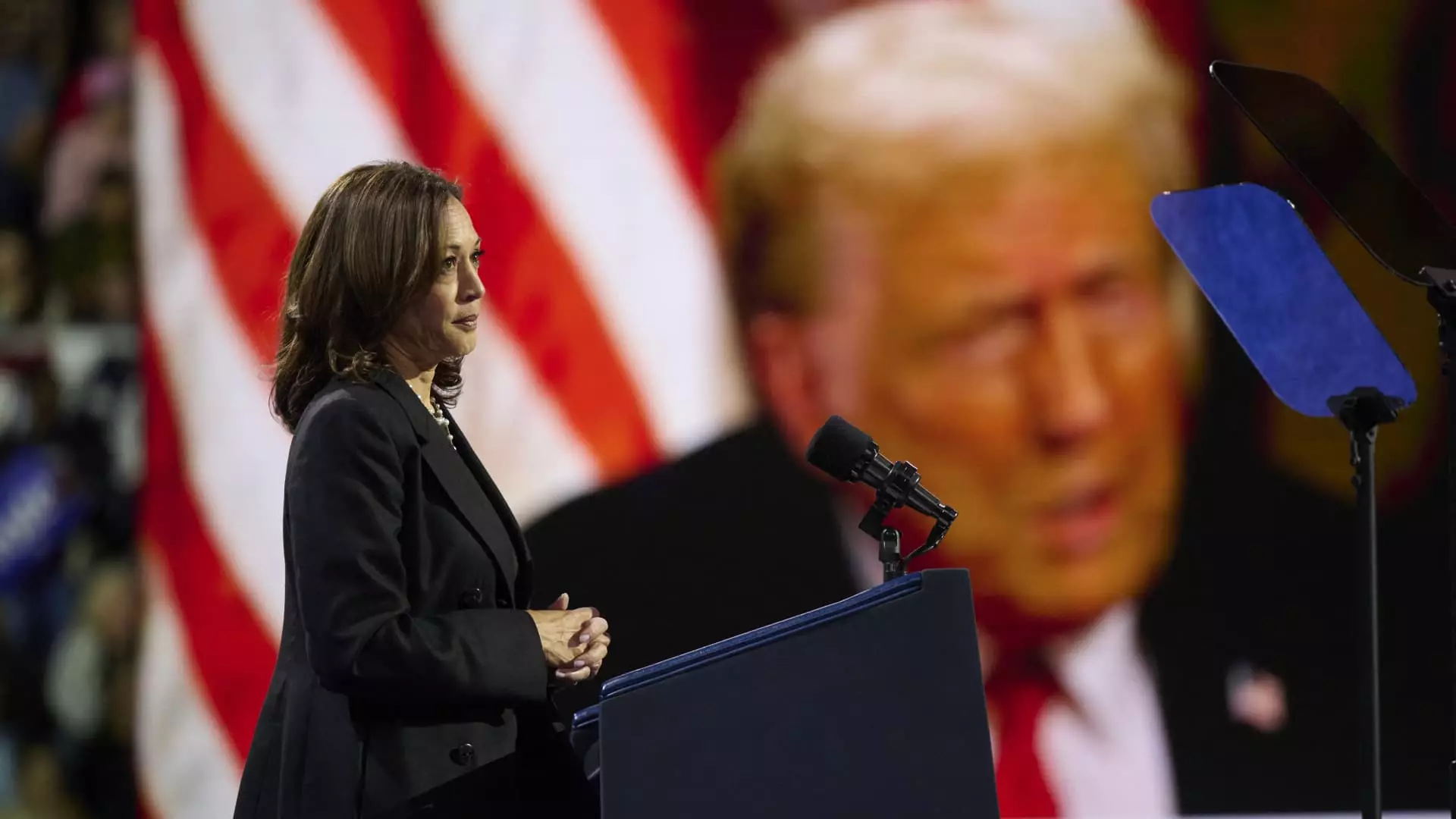In recent weeks, the political betting market has witnessed a notable surge in activity surrounding former President Donald Trump’s candidacy for the 2024 presidential election. This increase has attracted scrutiny, primarily due to the revelation that four accounts on the platform Polymarket, which collectively represent over $28 million in bets favoring Trump, are all controlled by a single trader. This article delves into the implications of these betting activities, the legitimacy of such speculation in political markets, and the evolving landscape of political betting.
The news that a single French national with a robust financial background dominates betting on Trump’s election odds raises significant questions. Such concentration of wagers in a single entity presents both opportunities and challenges for the integrity of the betting market. On one hand, this trader’s presumption of Trump’s viability could signal confidence among certain investors. On the other hand, it introduces potential concerns about market manipulation, leading to the investigation by the firm Nardello & Company.
Polymarket has firmly stated there is no evidence suggesting manipulation by the trader. Nonetheless, this raises the question: how reliable are prediction markets when a singular player holds substantial sway? If the account holder’s beliefs influence market perceptions, it might distill the essence of prediction markets from a diversified collective sentiment into an individual viewpoint, posing risks to their credibility as indicators of electoral outcomes.
Prediction markets, as articulated by Polymarket, are fundamentally different from traditional polling. They gauge the probability of an event—such as a candidate winning an election—by the financial stakes placed on that outcome. This is in stark contrast to polls that measure public opinion or voter intent. However, critics argue that the financial speculation can often lead to misleading narratives, especially if it diverges dramatically from polling data. In this election cycle, Trump’s supporters are holding Polymarket’s widening odds gap against Joe Biden’s running mate Kamala Harris as a positive sign of momentum.
Yet, it’s crucial to approach these betting patterns with caution. Electoral dynamics are infinitely complex, and the betting market should not substitute for the nuanced understanding nurtured through traditional polling methodologies. Investors in prediction markets can be influenced by myriad factors, including news cycles and social media input, which may not always reflect genuine voter sentiments.
The endorsement of predictive betting as a credible alternative to traditional polls by prominent figures, such as Elon Musk, complicates the narrative. Musk’s assertion that “actual money is on the line” adds a layer of legitimacy to the bets placed on candidates. However, such endorsements can further mislead the public if they encourage a singular interpretation of what the betting markets signify regarding electoral outcomes.
Moreover, as prominent technologists align their beliefs with market trends, the philosophy driving betting behavior may shift towards speculation rather than sincere belief in candidate viability. The echo chambers created by such figures can lead to amplified misinterpretations of the fundamental differences between polling and prediction markets, ultimately distorting public understanding of electoral probabilities.
As political betting platforms face regulatory challenges—evident in Polymarket’s ban for U.S. users and the ongoing scrutiny of Kalshi’s rights to host political bets—the future of this sector appears uncertain. Yet, this doesn’t quell the growing enthusiasm for political betting, spurred on by high-profile endorsements and significant financial stakes.
Integrating this enthusiasm with concrete frameworks that safeguard the integrity of prediction markets will be essential in ensuring their value as instruments of forecasting. The balance between speculative gambling and genuine political forecasting needs delineation; without it, the function of these markets is likely to be compromised in numerous ways.
As the 2024 election approaches, the role of betting markets will undoubtedly continue to evolve. Stakeholders must be vigilant about the shifting dynamics and the potential implications of individual traders wielding excessive influence. As the landscape of political gambling unfolds, clarity and integrity will be crucial in distinguishing meaningful insights from mere speculative currents.


Leave a Reply